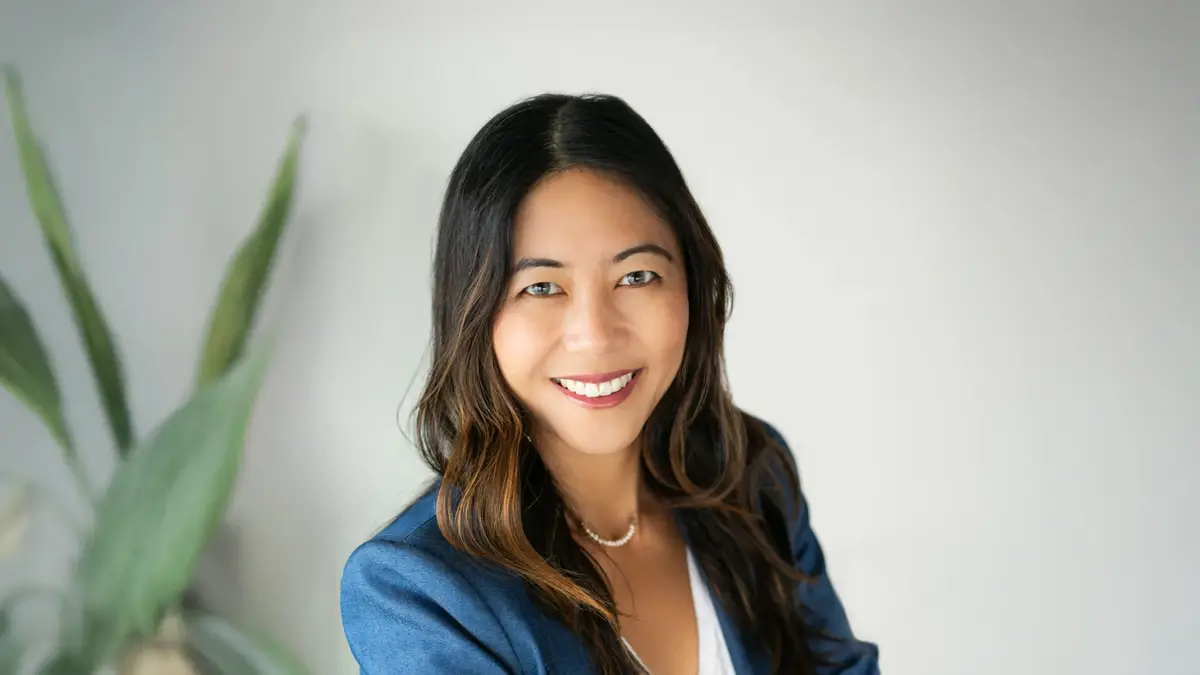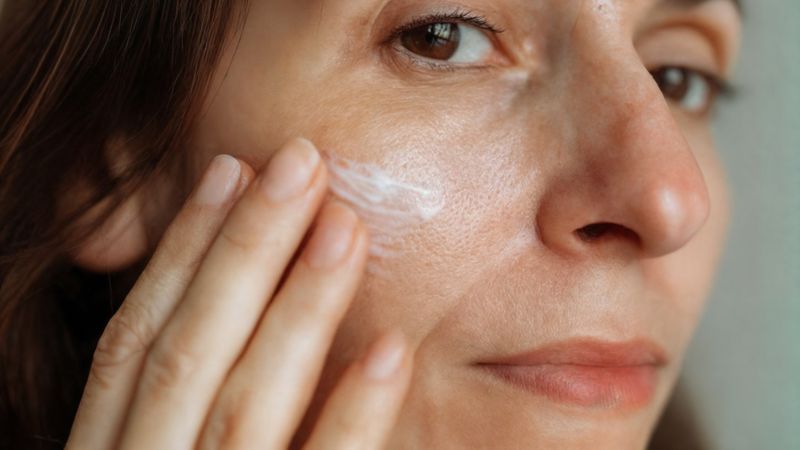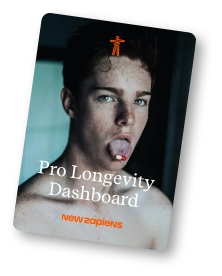Founder interview: Cheryl Sew Hoy, CEO & Founder at Tiny Health

In our Founder Interview series, we highlight the brightest minds in preventive health, wellness, and longevity. In Episode 9, we’re honored to feature Cheryl Sew Hoy, founder and CEO of Tiny Health — a pioneer in evidence-based microbiome testing for families and lifelong health.
Tell us a little about yourself and your current venture
I’m Cheryl Sew Hoy, founder and CEO of Tiny Health. We’re the first and only precision microbiome wellness platform designed for lifelong health — from the first 1,000 days to the last, helping families and individuals understand and improve their gut and vaginal health at every stage of life.
I started Tiny Health because there were zero gut microbiome tests available for babies and young children. My daughter struggled with eczema and food sensitivities, and I couldn’t find answers from conventional medicine. I knew something was missing, and the more I learned about the microbiome, the clearer it became: we needed early detection tools, not just reactive care.
Today, we offer evidence-based gut and vaginal microbiome testing for babies, kids, and adults. Our tests go beyond what’s available on the market — full genome sequencing, AI-powered analysis, and personalized recommendations based on real science. We’ve helped over 100,000 people so far.
Before Tiny Health, I led and sold a startup to Walmart Labs, ran a $30M government innovation agency in Malaysia, and helped scale several high-growth companies. My background is in engineering, data science, and brand strategy. I’m also a mom of three and live in Austin, Texas.
How do you balance the demands of running a business while maintaining your own health and longevity?
It’s a challenge, especially with a newborn. But I’ve been intentional about not compromising time with my family, especially in those first few critical years of development — whether that’s breastfeeding and bonding with my baby or sharing meaningful experiences with each of my older kids.
For my own health, I focus on anti-inflammatory practices. I installed a home sauna and try to use it at least twice a week to detox and manage inflammation. I’m slowly returning to strength training, knowing how important it is for women’s bone density and metabolic health as we age. I also rely on a highly tailored supplement regimen based on my biomarkers, and keep a clean diet.
As I enter my 40s, I’m increasingly focused on optimizing for longevity — not just for myself, but to set an example for my children and team. Biohacking is personal, but it also gives me insight into the goals, challenges, and wins our customers experience.
Do you have a personal health goal? What is it?
My goal is to lower inflammation. My hs-CRP, a blood inflammation marker, has been really high for over a couple of years, and I’m doing everything I can to figure out the root cause. I suspect past gut infections and possibly a dental issue, so I’ve been working with biological dentists and testing my gut regularly to track progress. One of the major insights from Tiny Health testing was that I have elevated pathogenic E. coli since a bout of traveler’s diarrhea over a year ago. I’ve made progress since then, but I’m still focused on healing my gut and getting that hs-CRP back to baseline. It’s been humbling. Even as a founder in this space, healing takes time.
Before launching Tiny Health, can you walk us through the “aha” moment that inspired the creation of your service?
My daughter’s health issues were the wake-up call. As a baby, she had eczema, food sensitivities, and poor sleep, and no one could tell me why. I tried everything from steroid creams to elimination diets, but it all felt like guesswork. I wanted better answers.
That led me to the microbiome. I found study after study showing that a child’s gut health in the first 1,000 days shapes their lifelong immune health. Yet there were no gut health tests designed for babies.
So I built it. I incorporated Tiny Health one week after my second child was born. I pulled together a team of microbiologists, pediatricians, and engineers, and we spent two years in R&D before launching our Baby Gut Health Test.
What sets Tiny Health apart in the health and wellness industry?
Tiny Health is not another generic gut test. From day one, we’ve been focused on scientific depth and clinical-grade insight. (The “Tiny” in our name refers not just to tiny babies, but also the tiny, invisible microbes in your gut.) We use shotgun metagenomic sequencing and built a proprietary bioinformatics pipeline so we can analyze microbiome data with unmatched precision. We didn’t outsource the science, and that decision changed everything. It gave us the speed and depth to build something no one else in the space had done.
We go beyond reporting on diversity scores and taxa alone (which microbes are present or absent). We also report on the gene functional pathways of the microbiome, from gut inflammation and digestive function markers, to fiber fermentation capacity and other functional metrics that anyone — from biohackers to people with chronic conditions like IBD — and their practitioners can use to make informed decisions. This is the future of precision microbiome testing and evidence-based actionability.
Our team has built a B2B platform so clinics and wellness brands can integrate our science into their care models. That’s why we’re now the testing partner for a major hospital system, high-performance wellness clinics, and top-tier longevity programs, along with over 1,500 integrative and functional practitioners, and conventional doctors at Kaiser and Mass General.
While most companies work backward from adult disease, we started with the microbiome in the first 1,000 days of life. That gives us a unique lens into prevention. Because we know what a healthy gut looks like from birth and toddlerhood into adulthood, and we’re using that to shape how we understand aging, chronic disease, and performance.
We're capturing features of a healthy microbiome — answering questions like, do you have enough short-chain fatty acids (SFCA), sufficient GABA production for better mental health, or high beta-glucuronidase that may be interfering with estrogen recycling and drug synthesis? And how resilient is your gut so you can bounce back after illness?
We’re currently recruiting for our latest Research Edition, focused on adults ages 60 and up. And because we own our data across the lifespan, we can connect the dots in a way no one else can.
What’s the most surprising lesson you’ve learned from your customers or users?
That people just want to be heard.
So many of our customers come to us after feeling dismissed by the healthcare system. Parents of babies with eczema or reflux. Women with autoimmune symptoms. Adults with gut issues who were told everything looked “normal.” What they’re really asking is: does anyone believe me?
Listening with empathy is powerful. Whether it’s on a coaching call, in an email, or through our blog and social media, we meet people where they are and validate their concerns. And our test results take that validation a step further — by giving them concrete, science-based answers about what’s going on inside their body. For many, seeing their microbiome data is the first time they’ve had proof that their struggles are real and not “in their head.” That can be life-changing.
When we pair that insight with a real, evidence-backed action plan, people regain a sense of agency over their health. That trust is transformative, and it’s what keeps families coming back and telling others.
What is the most groundbreaking or unexpected finding in the field of longevity research that you’ve come across recently, and why do you find it so compelling?
Companies with direct-to-consumer technology, as it's strting to bypass the traditional model of having to ask your PCP for test orders. Then, optimizing health is in our own hands!
In your opinion, which emerging longevity trend or product will have the most transformative impact on our health over the next five years, and why?
One area I find incredibly exciting is the emerging connection between mitochondrial health and longevity. We're seeing more research suggesting that aging and even cancer may stem from mitochondrial dysfunction, when our cellular powerhouses begin to degrade.
This has huge implications. Not only could supporting mitochondrial health improve lifespan and performance, but it could also help us prevent or even reverse cancer — essentially reframing oncology through the lens of metabolic aging.
At Tiny Health, we’re watching this closely, especially because the gut microbiome is increasingly linked to mitochondrial function. We recently added a Urolithin A capacity metric to our gut health tests, as it’s one of the few compounds known to stimulate mitophagy — the cellular cleanup process that removes and recycles damaged mitochondria. The interplay between gut health, inflammation, and mitochondrial health may be the next frontier, and we intend to be at the forefront of that research.
One thing you wish more people knew about health and longevity?
Sleep is so foundational. Fix sleep and it will fix everything else. I track my sleep with my Oura ring to make sure I’m getting enough deep sleep earlier in the night and enough REM toward morning.
What is the biggest longevity myth you’d like to debunk?
That there’s a magic pill or silver bullet (or supplement). The real secret to health and longevity is consistency, and you don’t need to overhaul your entire routine to get there. Small, sustainable changes add up, but they still take effort, persistence, and the drive to work toward better health.
If you could recommend only one supplement for a longer, healthier life, which would it be, and what makes it indispensable?
I can’t pick just one. Omega-3s and vitamin D are at the top of my list. Most people are low in both, yet these two nutrients, proven in large human trials, can cut autoimmune disease risk by over 20% and slow aging, cancer, and frailty — making them some of the simplest, most powerful tools for a longer, healthier life.
What resources (books, podcasts, mentors) have been most valuable in your entrepreneurial journey?
Rhonda Patrick and Huberman Lab have been most impactful to me from a health perspective. But for my founder journey, the Founders Podcast, and the book, High Output Management. When it comes to mentors, I draw inspiration and lessons from just about everyone I meet.
If there’s one message or insight you’d like readers to take away from your journey, what would it be?
Your gut health is shaping your future. Don’t wait for problems to show up, care for it every day, starting now.
Author: Karol Domagalski
Family and health first. Big on sports, nutrition, longevity, travel, and all things digital. Founder of New Zapiens, on a mission to help people live their best lives.




